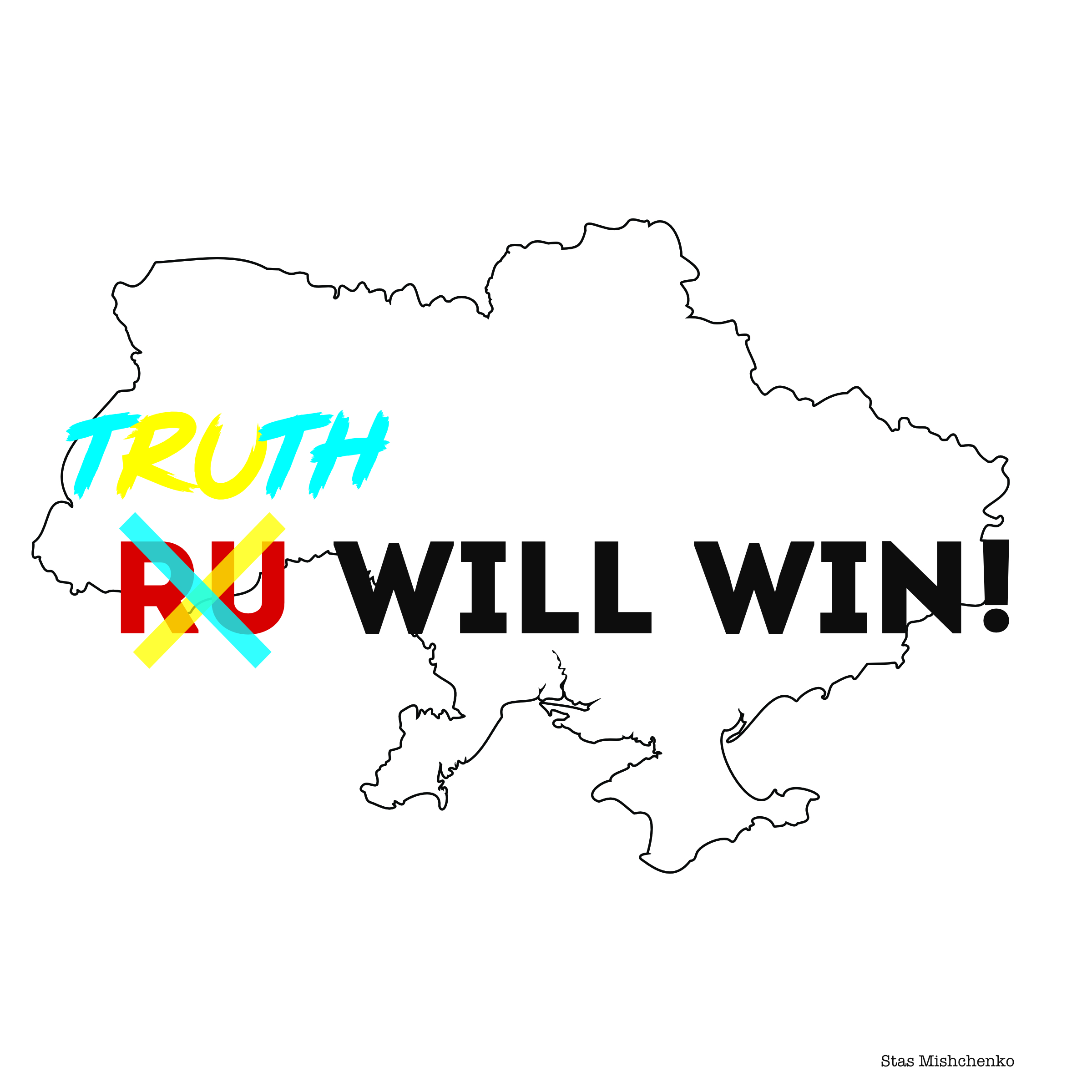
On the third day of the full-scale Russian invasion of Ukraine, a team of Ukrainian civil society professionals launched an online resource, "ShareTheTruths" with multilingual daily updates about key developments related to the Russia-Ukraine war. Its founders believe that fact-checked and evidence-based information is a powerful tool of Ukrainian resistance, especially in the complex hybrid war.
"We started literally from one page on February 26, as there was demand from our friends and colleagues abroad for condensed information on what was happening in Ukraine. At first, we focused mainly on the situation in Kyiv and Kyiv Oblast, and another block was devoted to what's happening in the regions. Over a few days, we realized that war could be considered not only from the military perspective but through its impact on different dimensions of human life. We saw that the war is way more than battles in certain parts of the country. It impacts everyone regardless of where you are located, whether you have missiles flying above your head or not. Moreover, this war is not limited to Ukraine only", said Sofia Oliynyk, project co-founder.
With this understanding, the project team started to analyze the war in Ukraine through the human security lens, which includes, in addition to physical security, political, economic, and environmental dimensions, security of communities, law enforcement, health care, etc.
The goal of the project is to keep people informed on the key developments within the last 24 hours, to save time, as a two-page brief can be glanced over in several minutes, and to give readers a convenient tool for providing updates to decision-makers in their cities and organizations (all materials published at the website can be downloaded in pdf form for reading and printing). However, to prepare a 10-minute read, the project team checks dozens, if not hundreds, of news items daily and will extract only the most important and reliable pieces.
"It is essential to share information without any bias. No matter how painful it could be to process all the information we write about, we try to do it from a neutral point of view – without having emotions, just writing facts. We pick every single fact that we put into the brief very carefully. If we are not 100% sure, we will certainly double-check. When we see that actual news items use assumptions, we most likely skip it and wait for a moment when it becomes a fact. To do so, we analyze all major independent Ukrainian media, recognized international media outlets, as well as official reports of international and Ukrainian institutions, and NGOs. We include information only from the verified accounts cross-checked between different resources", added Sofia Oliynyk.
Along with daily updates, the project offers thematic articles on decolonization and leaflets that provide an overview of a specific topic for an ordinary person outside Ukraine. For this, the project team invites highly specialized thematic experts recognized in Ukraine.
Another feature of the project is its multilingualism. During the first three days, the project team managed to engage around 20 volunteers who edited and translated the daily updates to 15+ languages. Involvement in the project makes many of them feel like contributing to fighting this war, as translation into local languages is a massive help to spread the information and combat pro-Russian propaganda.
Among those who joined the volunteer team are Inna Kotenko, Dmytro Shostak, Polina Yelisanova, and Dariia Horina. According to them, despite the world's globalization, distance and language barriers still matter greatly. In Japan, Ukraine was mainly known for the war that started in 2014, unlike Russia, which has a long history of diplomatic relations with the country.

"The more facts we share, the more people may notice the holes in Kremlin propaganda's fake stories. The people of Japan who help us a lot deserve to know the truth. However, too much information is tiring, so updates, like those presented by the ShareTheTruths project, are easy to understand and take only a few minutes to check. In addition, the news is short-lived nowadays. The information that caused a great resonance yesterday is barely remembered today. That is why it is important to constantly provide updates on what is going on in Ukraine and make them easy to consume, so no one could pretend that it never happened or didn't matter," explained Dariia Horina, project volunteer translator.
The primary audiences of the project are international organizations, international decision-makers, media, analysts, and businesses. The project team managed to cover Europe, North America, Asia, Australia, and some South American and African countries with the materials in different languages.
"I learned about the ShareTheTruths in the middle of March from the trusted influencer I was following. The project's main advantage is that I can get up-to-date and reliable information that presents facts and leaves out strong emotions. The current format is great as it is, and I think many people would find it helpful to understand the developments in a factual manner," noticed Aleksandra Indilė, the London-based project follower.
Starting as a volunteer initiative, ShareTheTruths was recently supported by the Heinrich Boell Foundation, Kyiv office, Ukraine. The support includes the preparation of the daily updates, articles, and leaflets. However, a huge amount of work is still being carried out on a volunteer basis. Despite the reactive nature of the project, the team understood that it could be long-term with more comprehensive analytical texts on the reforms, achievements, or challenges the country was facing.
"The fantastic team of dedicated professionals is something that fascinates me in the project. Our contributors, experts, translators, editors, and communication specialists are the project's core. And this big team has come together on the third day of the war and is working day-to-day to distribute fact-checked information about Ukraine. We know that our readers print out the updates and distribute them in their neighborhoods, in offices, and even bring them to birthday parties," concluded Maryana Zaviyska, project co-founder.